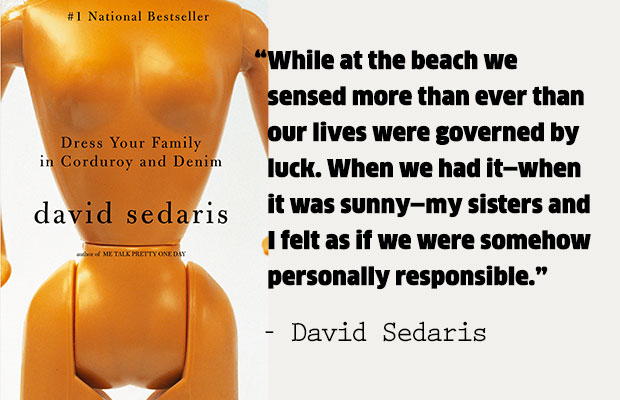
Sedaris first emerged with a story he told on NPR's ''Morning Edition'' called ''Santaland Diaries,'' which recounted his experiences working as an elf for Macy's during the height of its holiday crush. But Sedaris's first medium was radio and as the sine qua non of radio is companionability, Sedaris has cultivated a far cozier and ingratiating aura than Allen's. Sedaris is a little like Woody Allen - he is physically small, self-obsessed, and has spun from his own humiliations a charming, and very marketable, persona. The time has come to admit it: David Sedaris is nobody's hypothetical love child but his own. He wins awards - the Thurber Prize for American Humor, in 2001 - and sells books by the metric ton. Over the last decade, Sedaris has crept into his own eminence and is now a pledge-drive superstar for public radio and a regular presence in The New Yorker. These kinds of comparisons may be a compliment to a young writer's promise but they're an insult to the established writer's originality. Salinger and John Waters'' and the love child of Dorothy Parker and James Thurber. He has also been called a ''caustic mix of J.

On the covers, flyleaves and outer packagings of the various David Sedaris-branded items in my possession, Sedaris is likened to Mark Twain, Oscar Wilde, Evelyn Waugh, William Trevor, Nathanael West, Woody Allen, Fran Lebowitz, Mark Leyner and Voltaire.


Cast around for a useful precedent for what Sedaris does, and you quickly get lost. It ''suggests cardigan sweaters,'' he once complained. BY consensus, David Sedaris is now America's pre-eminent humorist.


 0 kommentar(er)
0 kommentar(er)
